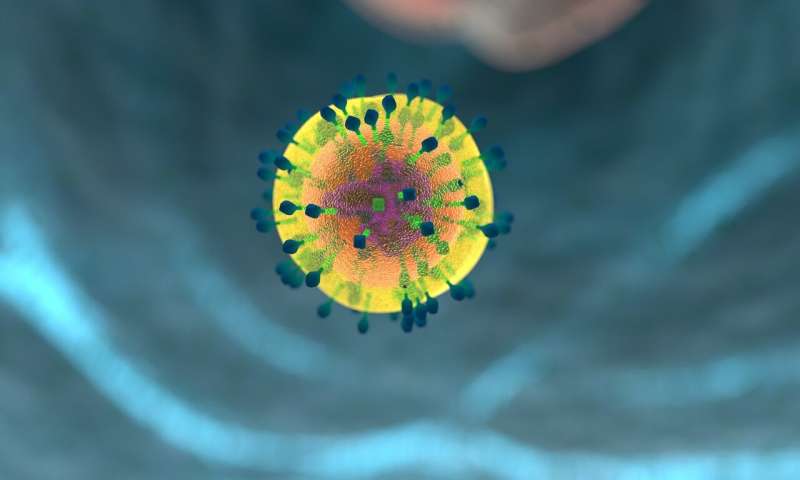#How melanoma deceives the immune system, increasing resistance to immunotherapy

“#How melanoma deceives the immune system, increasing resistance to immunotherapy”

The sophisticated human immune system has evolved to become an effective protection system against a great number of diseases, including cancer. The immune system recognizes and destroys cancer cells using a monitoring process called immunological surveillance. However, like Dr. Jekyll and his alter ego Mr. Hyde, the immune system sometimes takes on an alternate personality and favors tumor development instead of destroying cancerous cells. This dual behavior makes it difficult to detect prognosis indicators and targets for drug development. In fact, one of the big challenges in oncology is the development of better, more effective immunotherapy.
A research team headed by Marisol Soengas, head of the Melanoma Group at the Spanish National Cancer Research Center (CNIO), has taken an important step forward, discovering what melanoma cells do to remain undetected by the immune system, which does not attack them and even transforms into an ally. The study, published in Nature Medicine, may have interesting clinical implications and its findings can be applied to other cancer types.
An inside ally for melanoma
In 2017, the researchers in the Melanoma Group at the CNIO found that the MIDKINE protein plays an essential role in melanoma metastasis, so much so that its activation determines the tumor’s potential to metastasise. Actually, melanoma has a very high potential to metastasise early. The CNIO researchers analyzed the expression of MIDKINE in a novel animal model and found that higher expression of this protein is related to higher metastasis potential, while blocking MIDKINE inhibits the spread of cancerous cells. Recently, the researchers have taken an important step forward, discovering a new role of the protein in the immune system, which instead of attacking melanoma cells boosts inflammation and promotes melanoma growth.
“Our results help us understand why metastatic melanoma is associated with a poor prognosis and, especially, why some patients do not respond to immunotherapy,” says Marisol Soengas. “We examined databases from six separate studies and found a group of genes associated with MIDKINE expression in patients who do not respond or develop resistance to immunotherapy.”
Dual therapeutic strategy
The observations were tested in animal models: “When we blocked MIDKINE, two important types of immune cells (macrophages and T lymphocytes) began working normally again and attacked the tumor,” says Soengas. “This means that, in treating patients with melanoma, we should take a dual therapeutic approach.” Taking the brakes off an immune response, that is, using immune checkpoint inhibitors, is not enough. “MIDKINE should be inhibited as well, so that the defense system can regain its normal functions.”
“We also studied other tumors, like glioma, lung cancer and kidney cancer,” David Olmeda, co-author of the study, says. “We believe our findings will have a considerable impact in a number of diseases,” he adds.
In recent years, researchers and clinicians have made remarkable efforts to enhance immune cells’ cancer-fighting capabilities. However, even though in some cases immunotherapies are highly successful, this approach needs to be further developed. For example, it has proven ineffective in treating pancreatic cancer, while in the case of melanoma, around 60% of patients respond to treatment.
These differences in tumor response to immunotherapy led to the classification of tumors as hot or cold. “Some hot tumors do not fully respond to treatment, a fact we could not understand before,” says Daniela Cerezo, first author of the study. “Our results contribute to explain the reasons why this is so, and they will help increase the effectiveness of immunotherapy for these tumors.”
Study shows how interferon-gamma guides response to cancer immunotherapy
Cerezo et al. Midkine rewires the melanoma microenvironment toward a tolerogenic and immune-resistant state. Nature Medicine (2020). DOI: 10.1038/s41591-020-1073-3. www.nature.com/articles/s41591-020-1073-3
Citation:
How melanoma deceives the immune system, increasing resistance to immunotherapy (2020, October 19)
retrieved 19 October 2020
from https://medicalxpress.com/news/2020-10-melanoma-immune-resistance-immunotherapy.html
This document is subject to copyright. Apart from any fair dealing for the purpose of private study or research, no
part may be reproduced without the written permission. The content is provided for information purposes only.
For forums sites go to Forum.BuradaBiliyorum.Com
If you want to read more Like this articles, you can visit our Science category.




